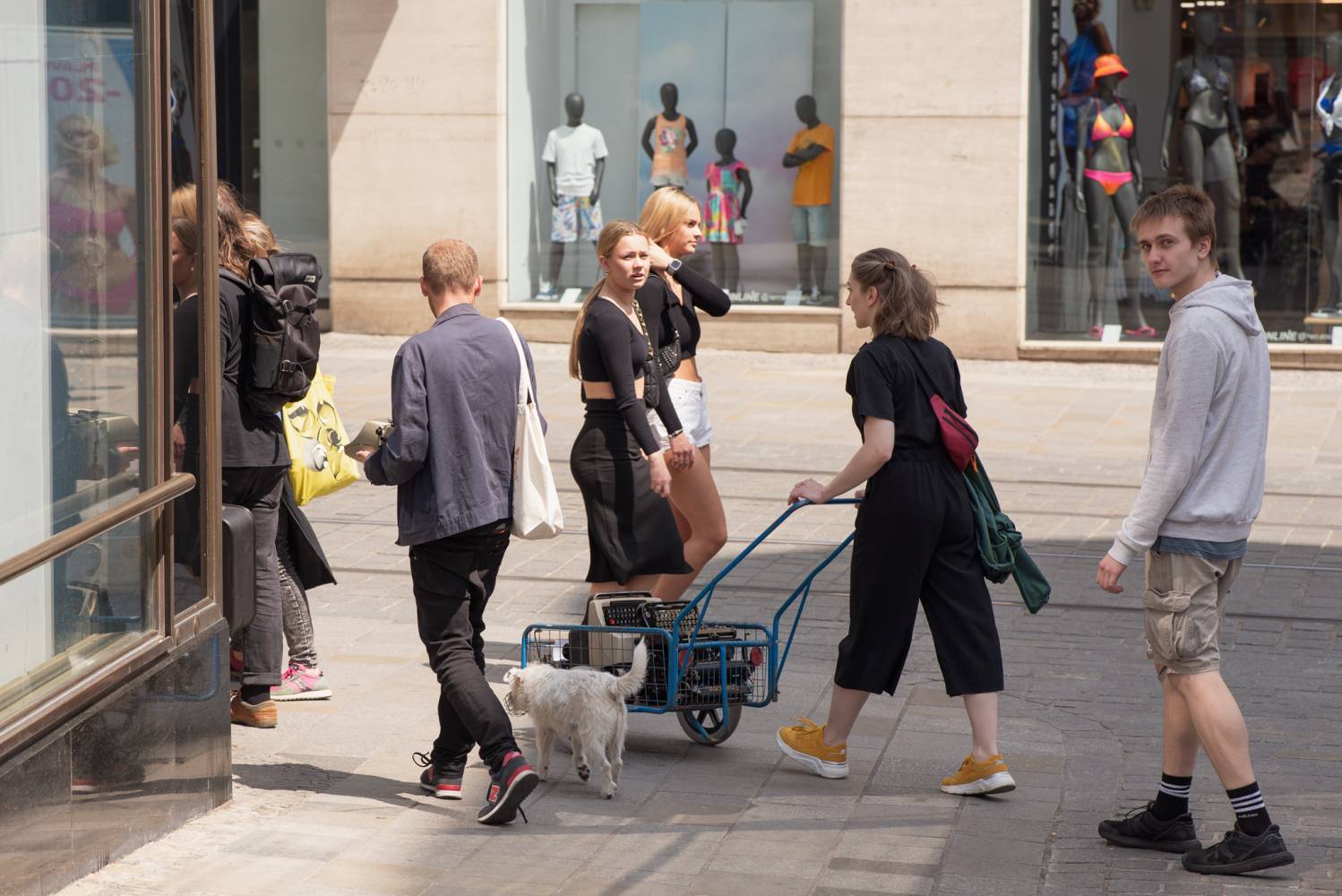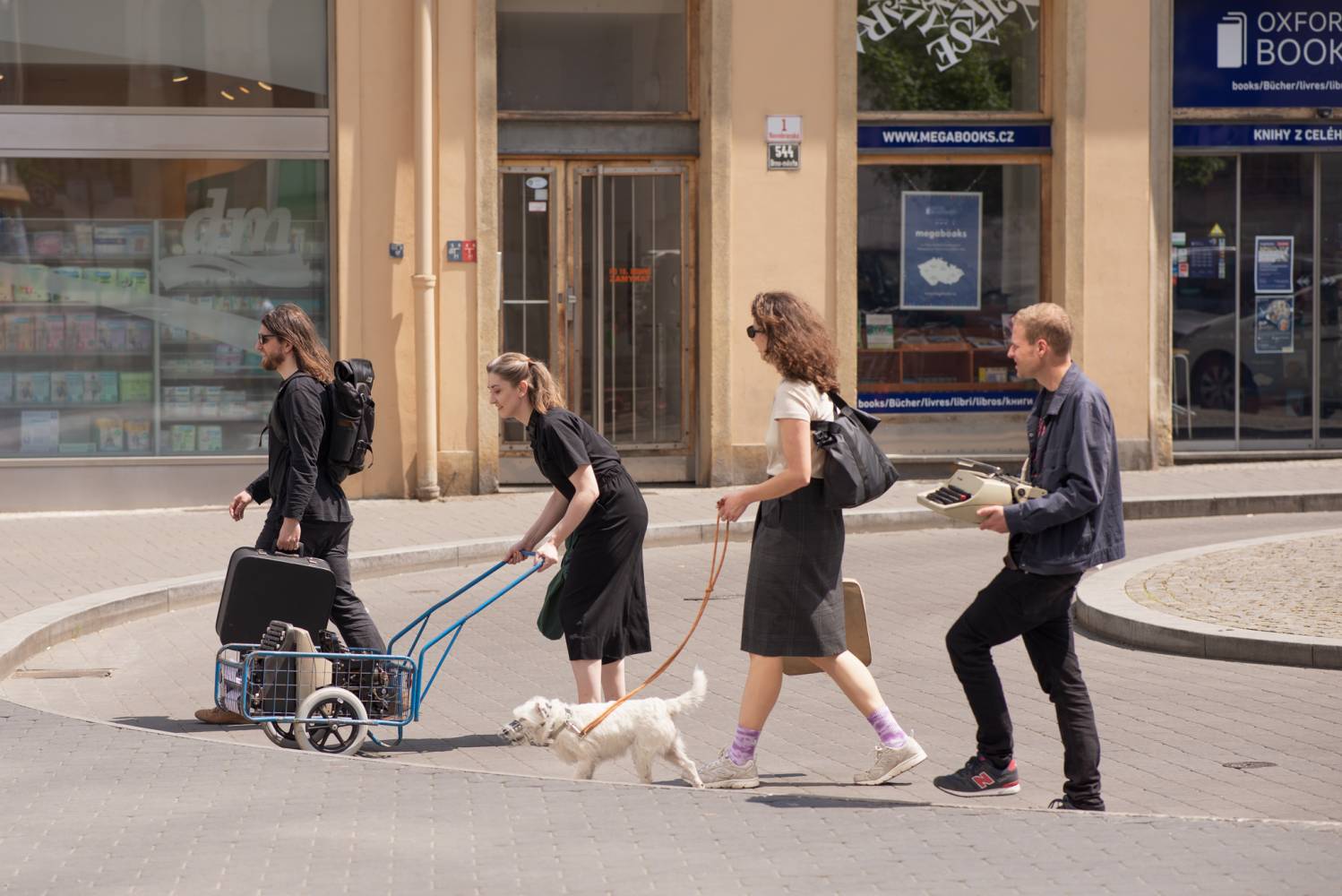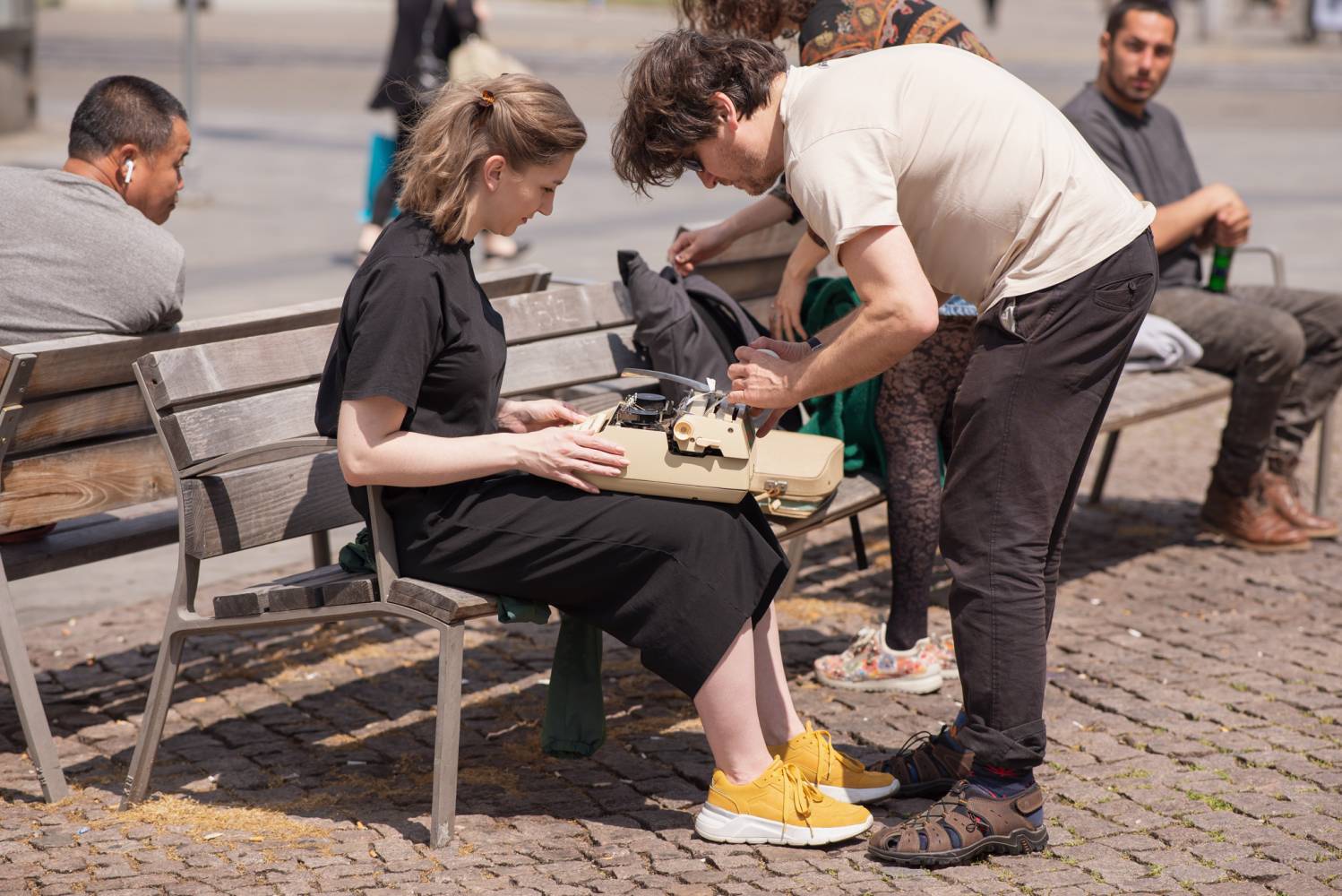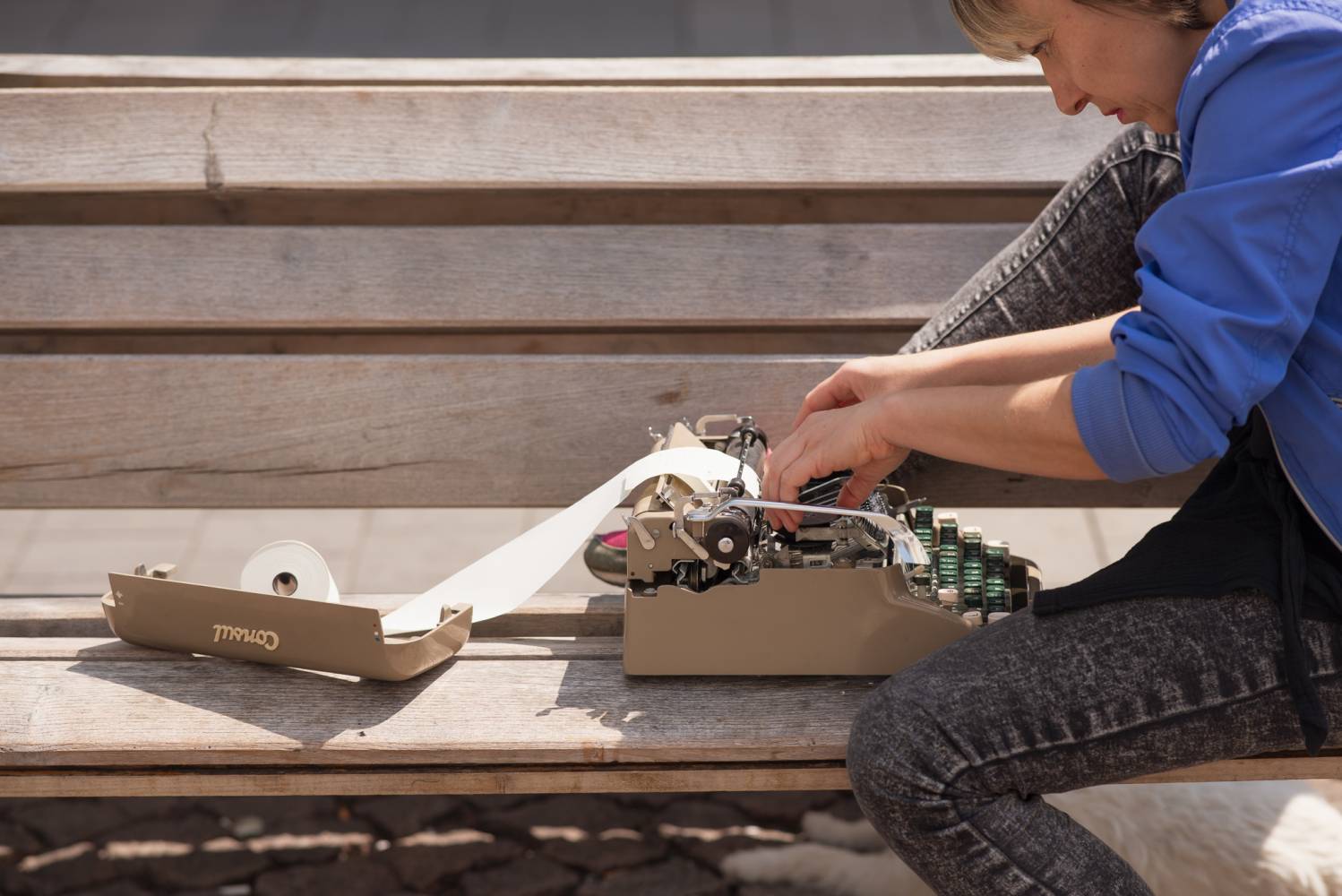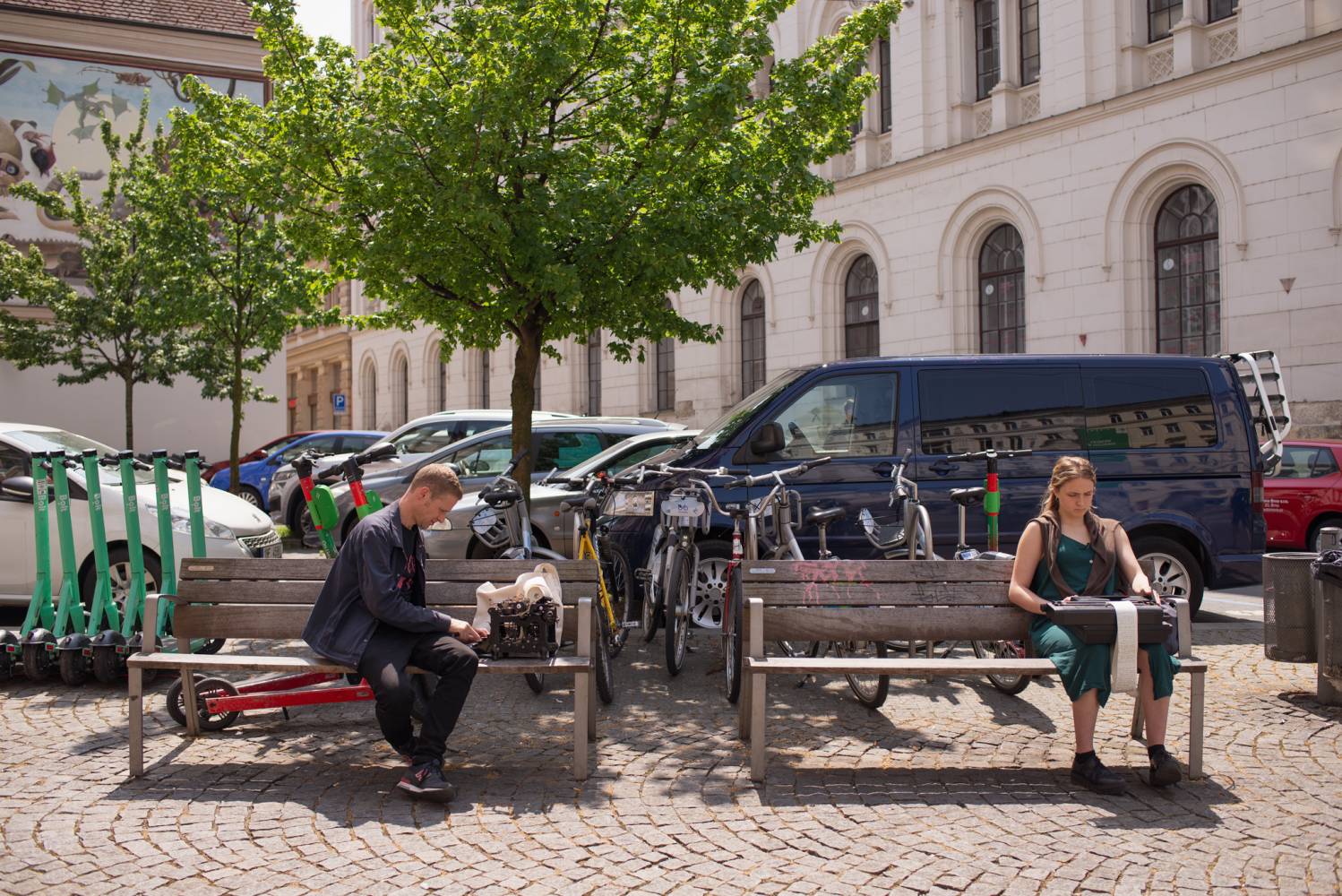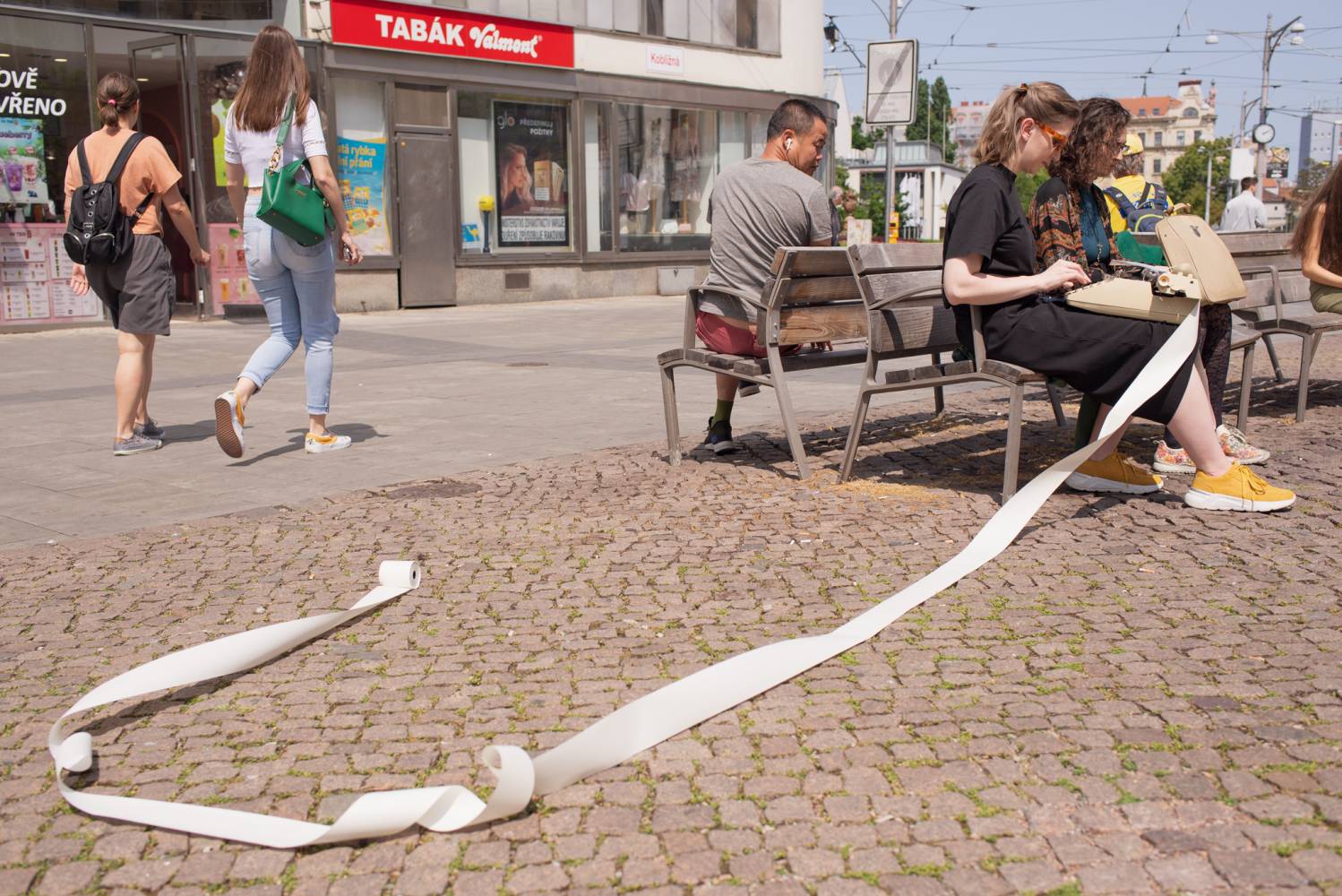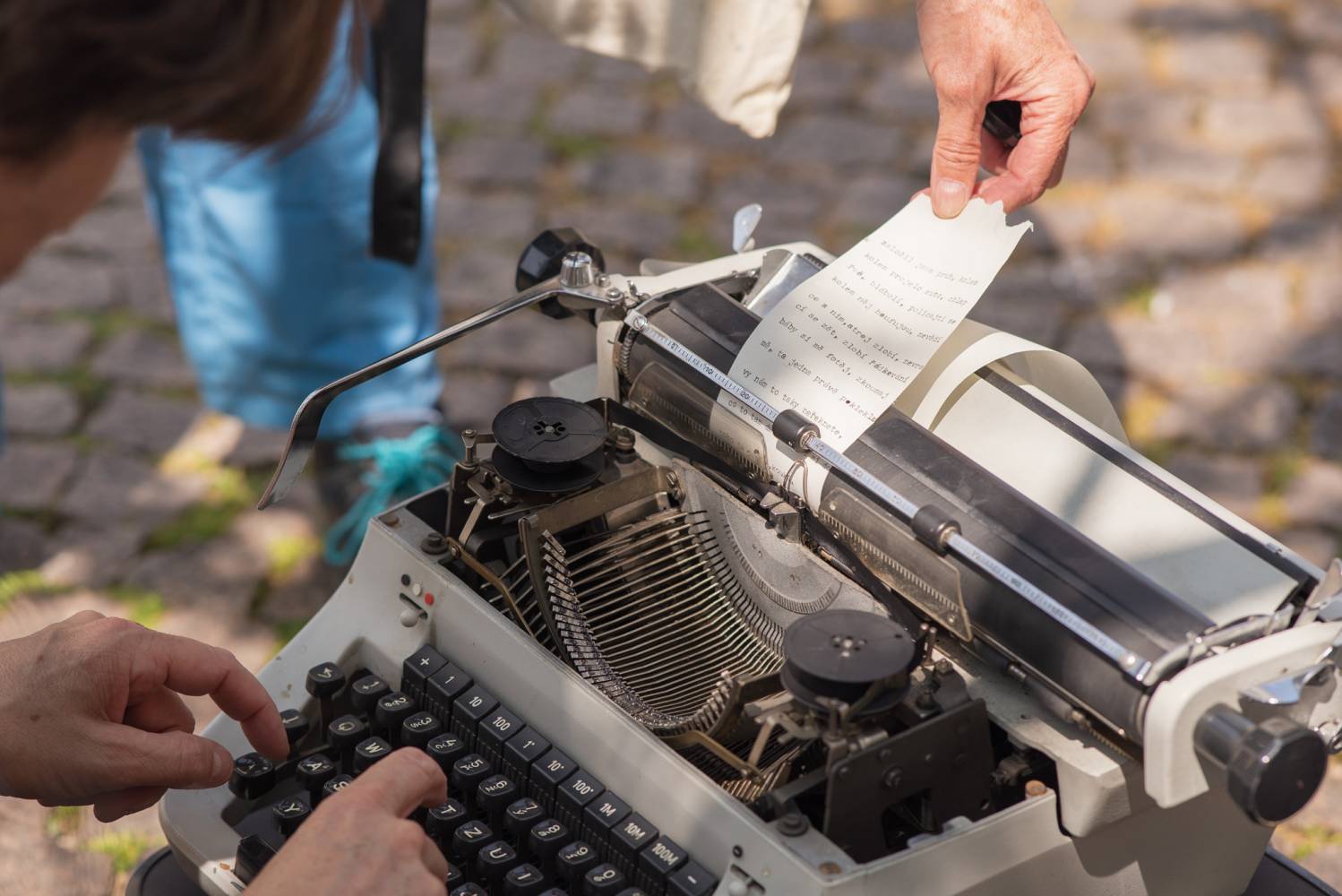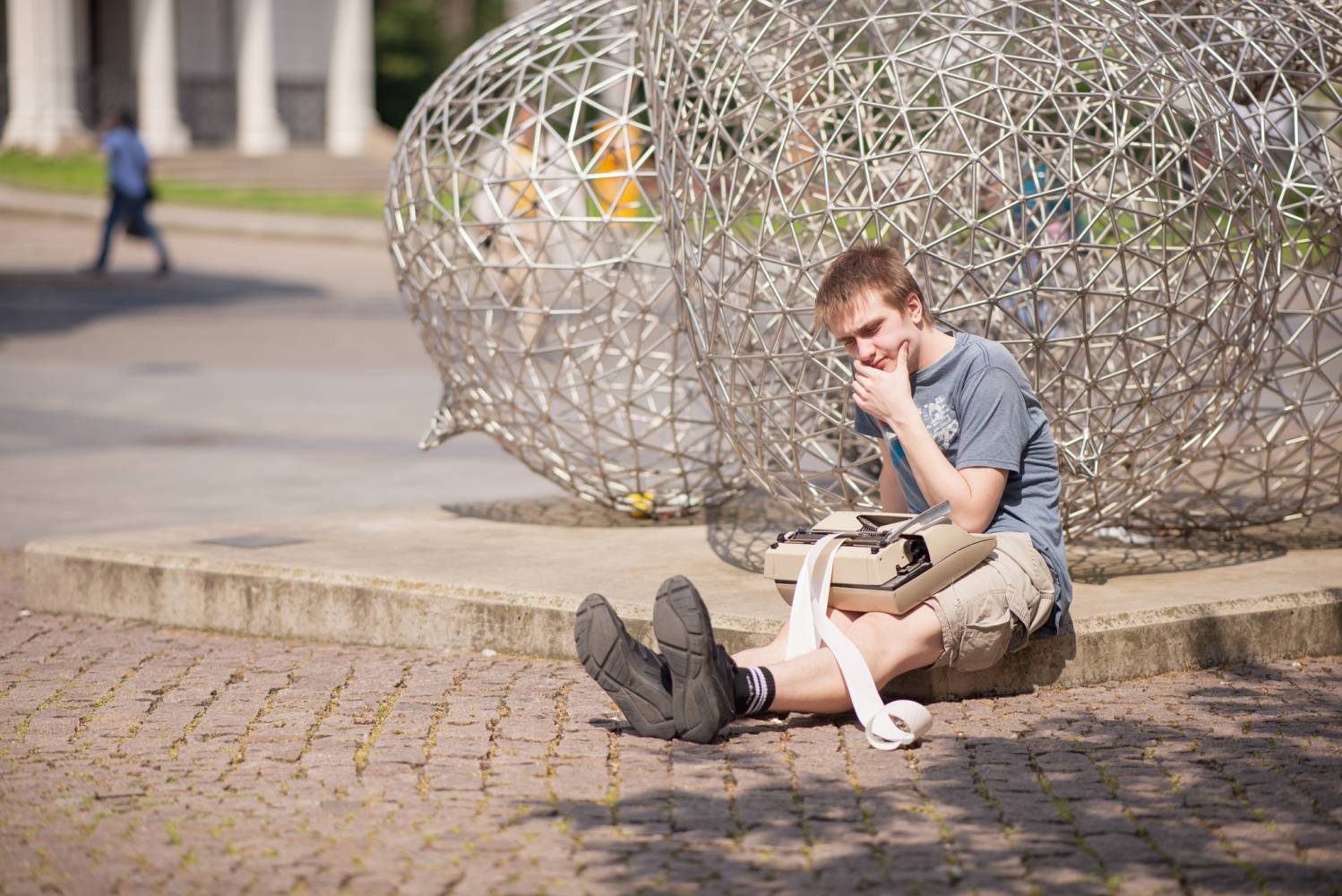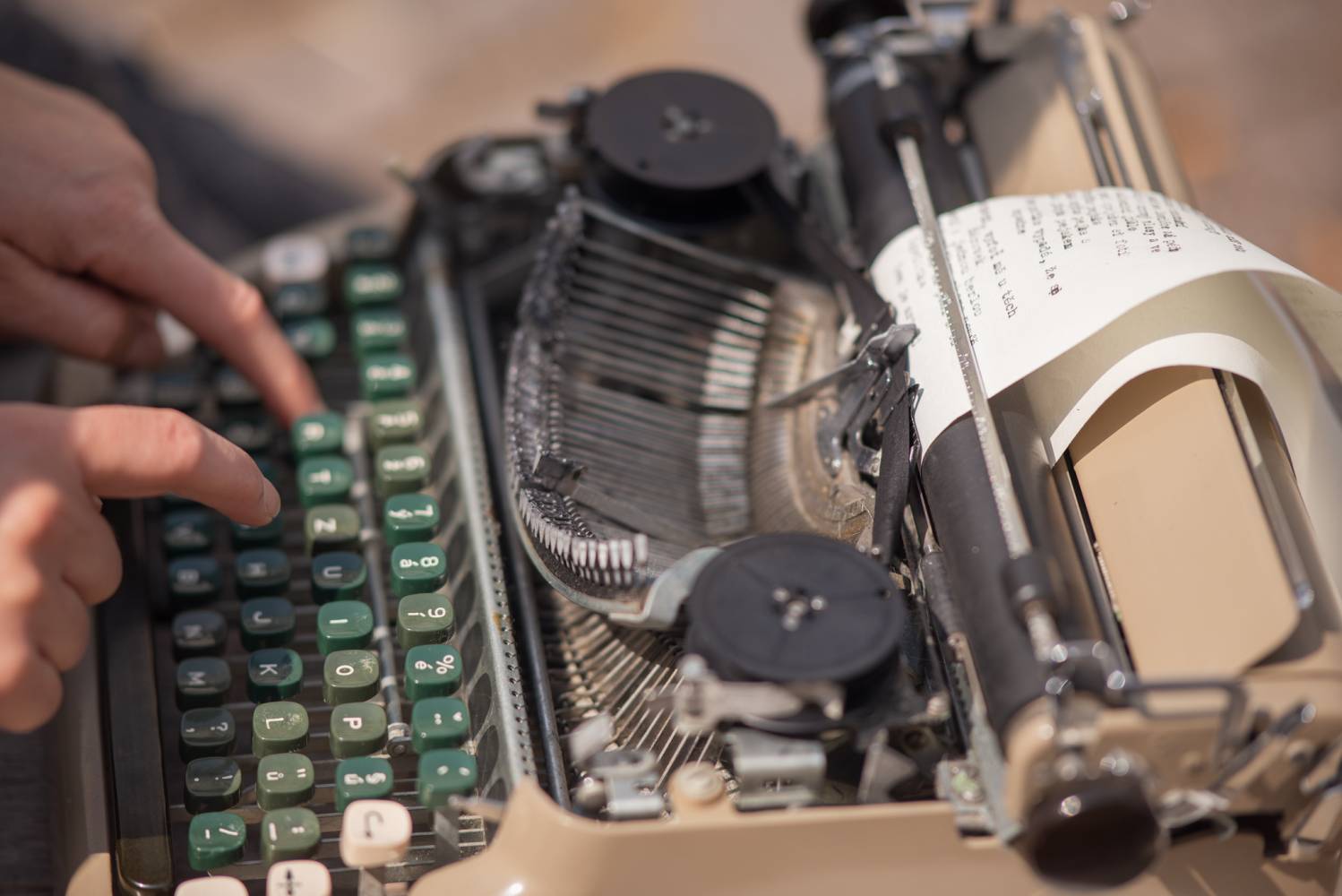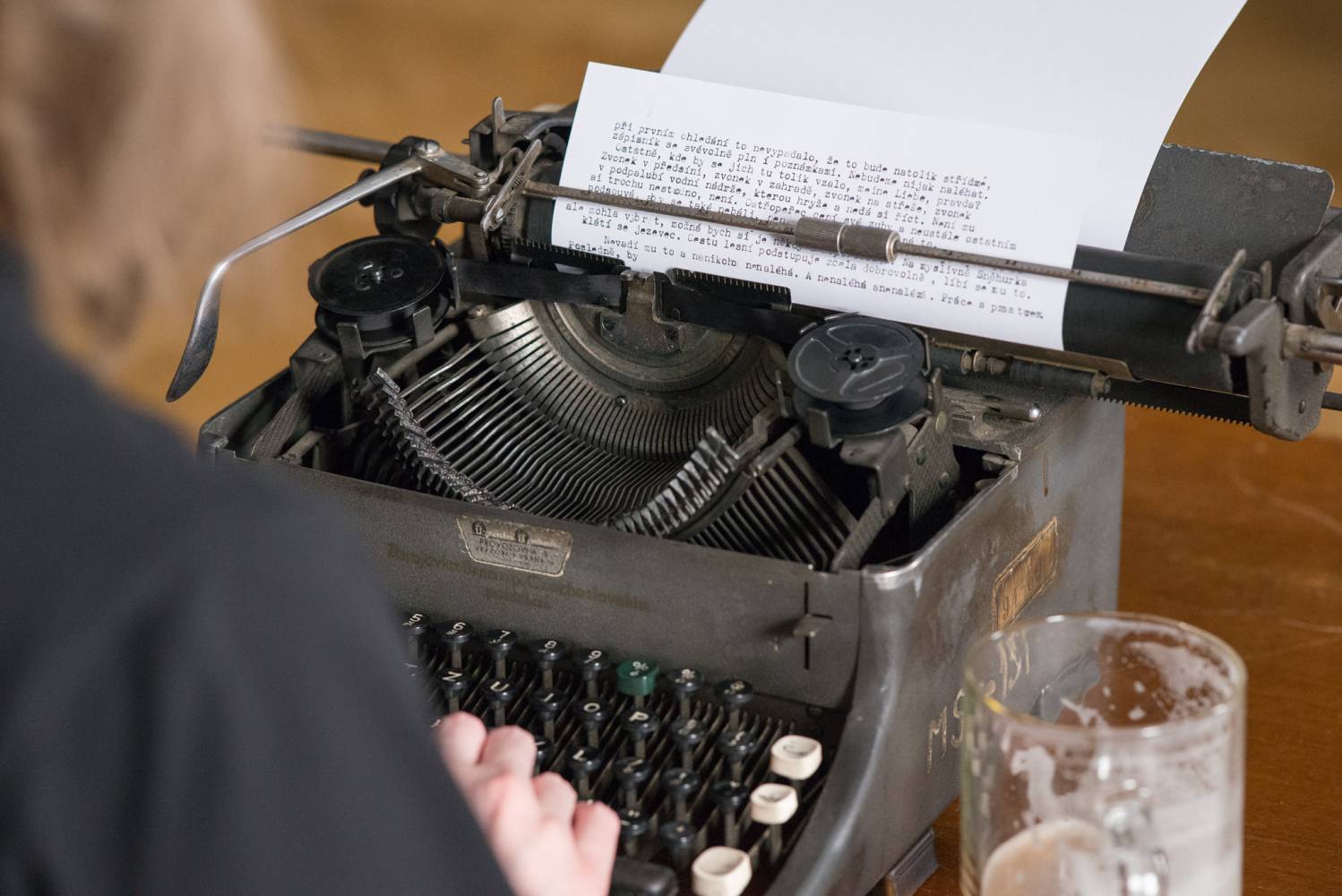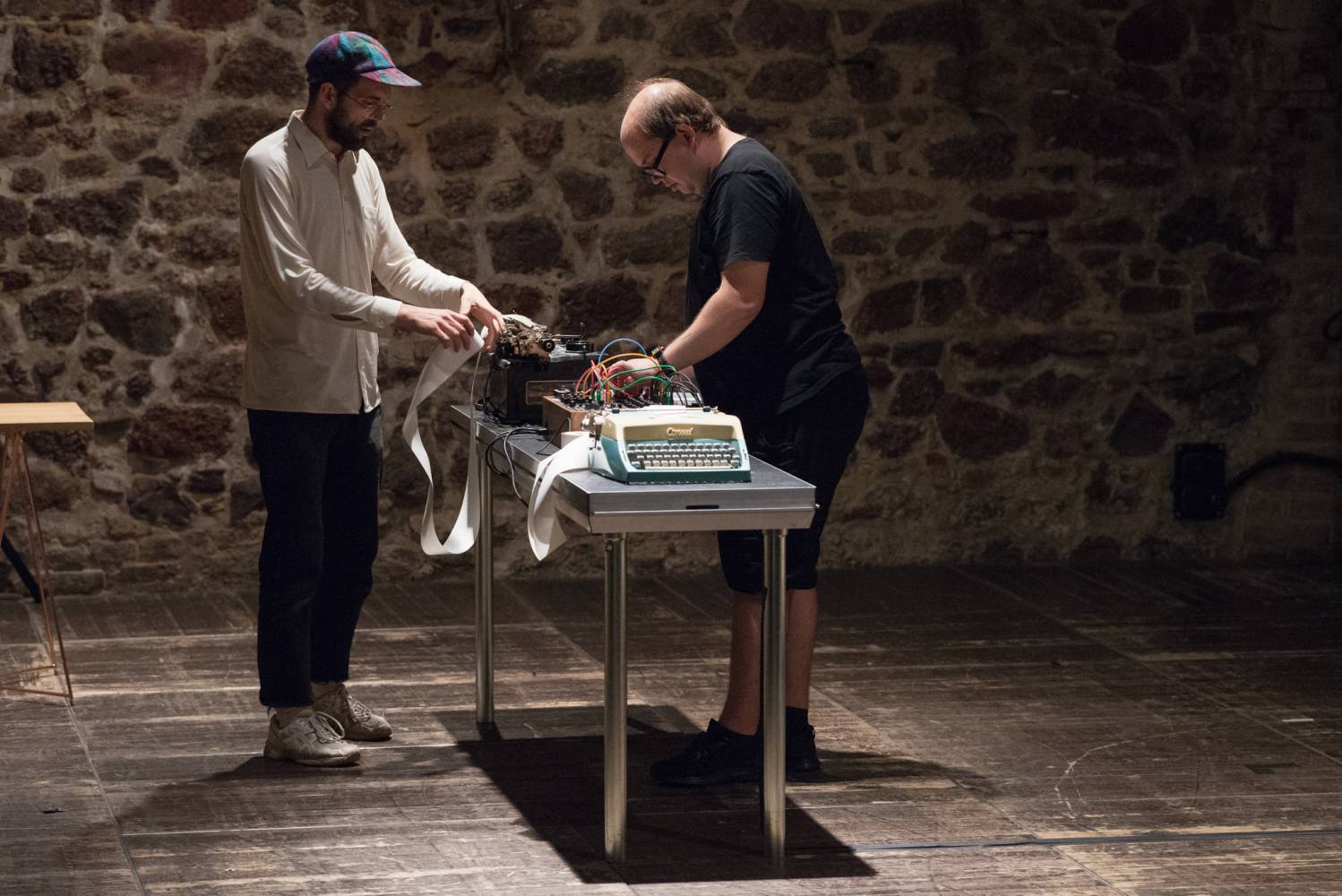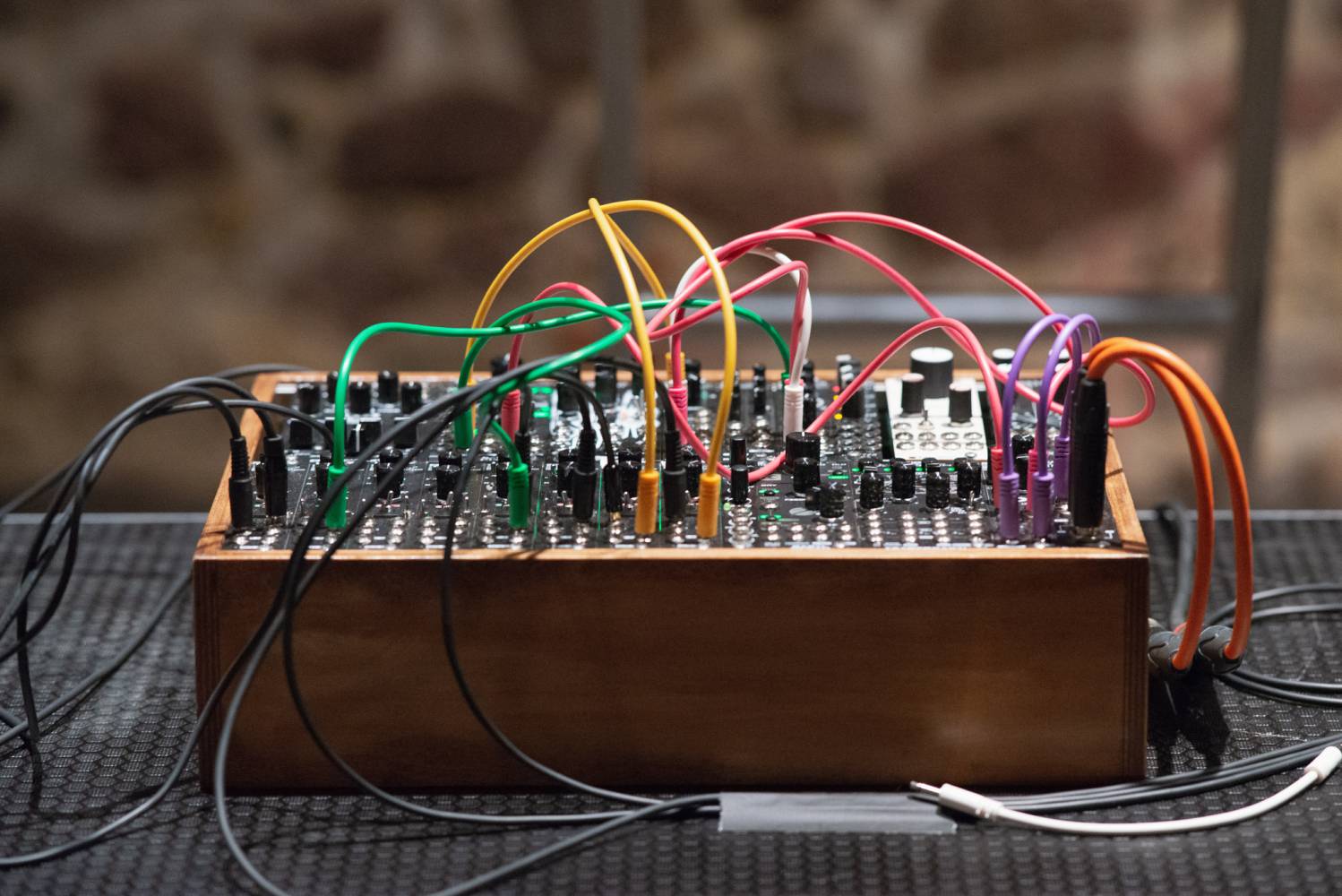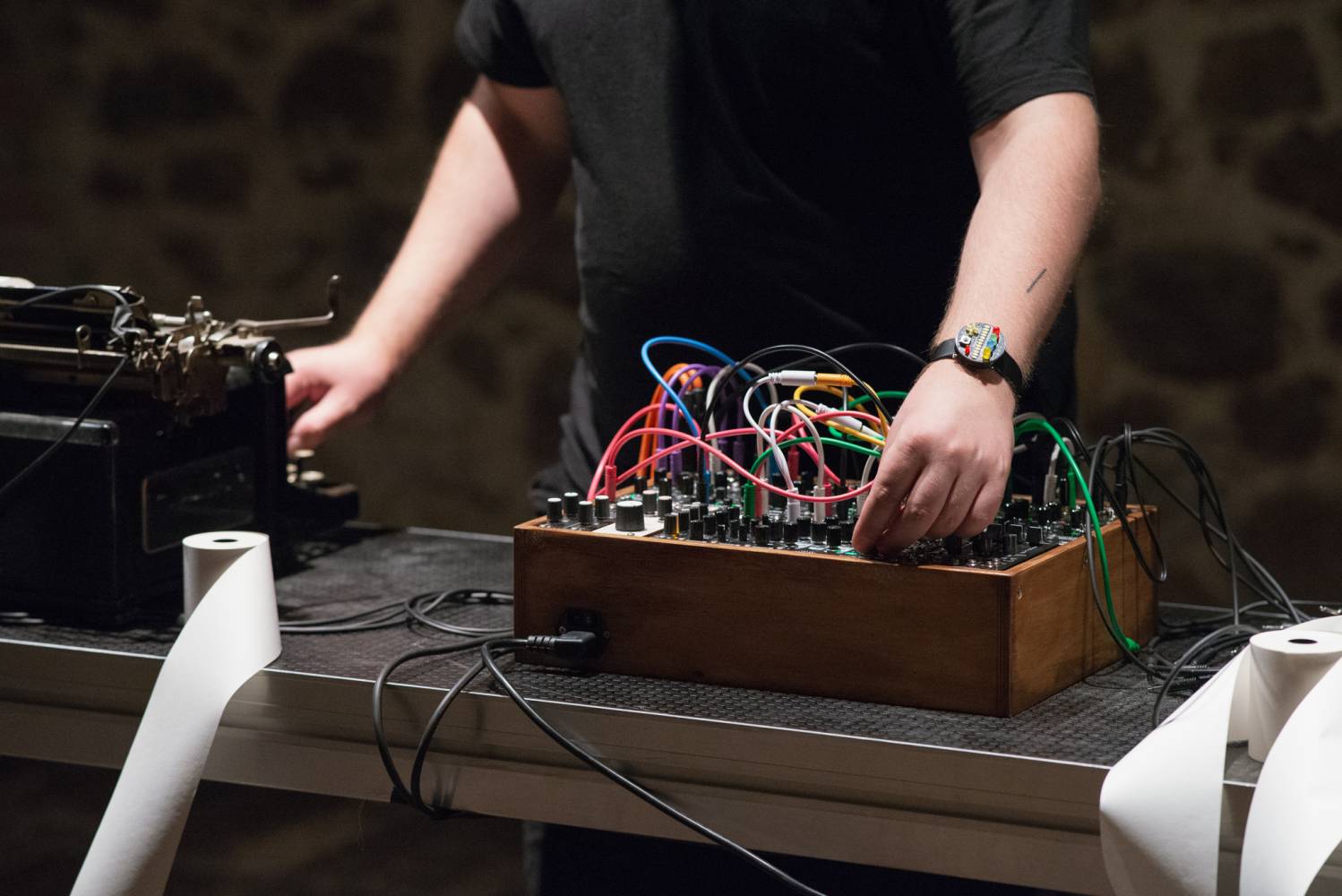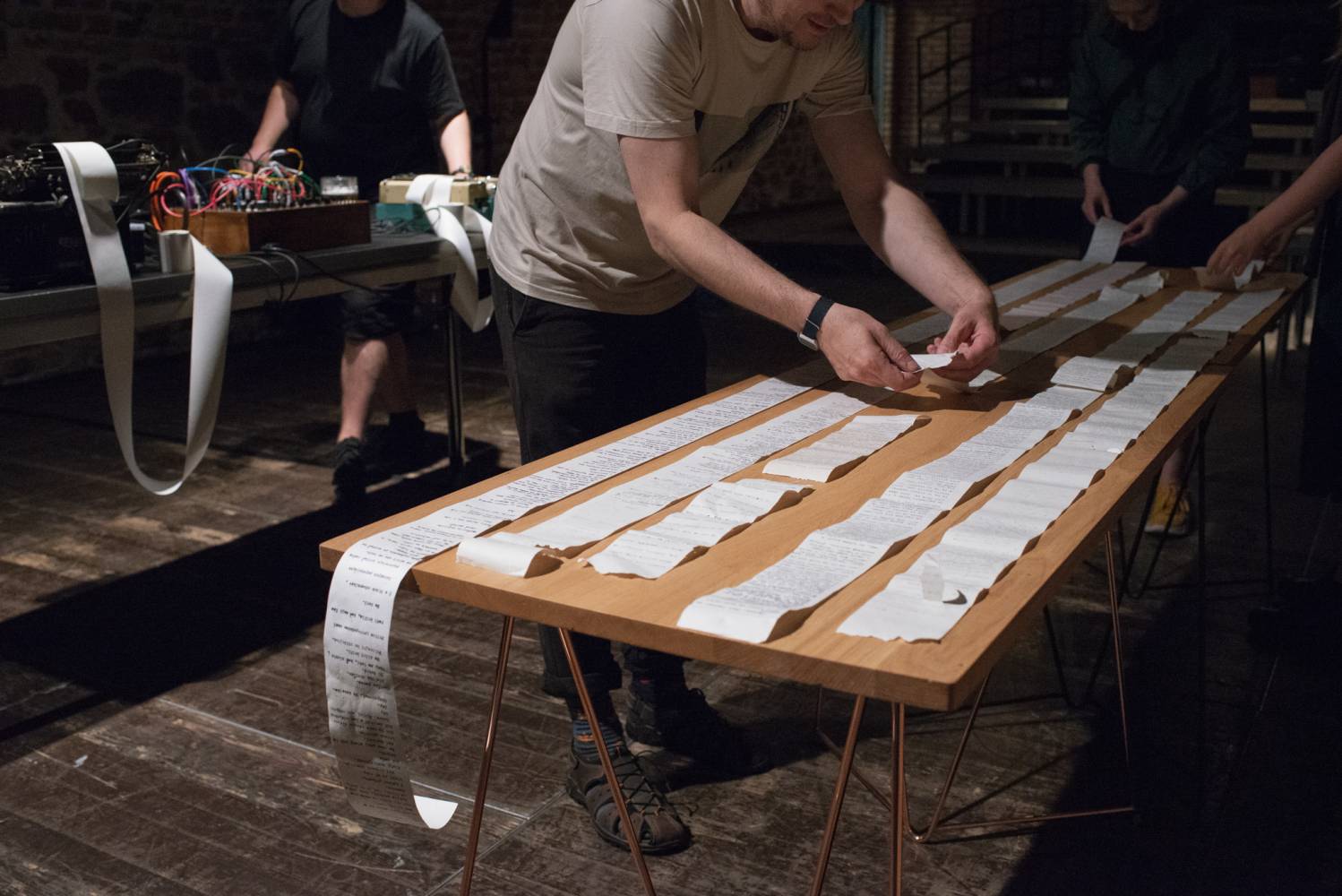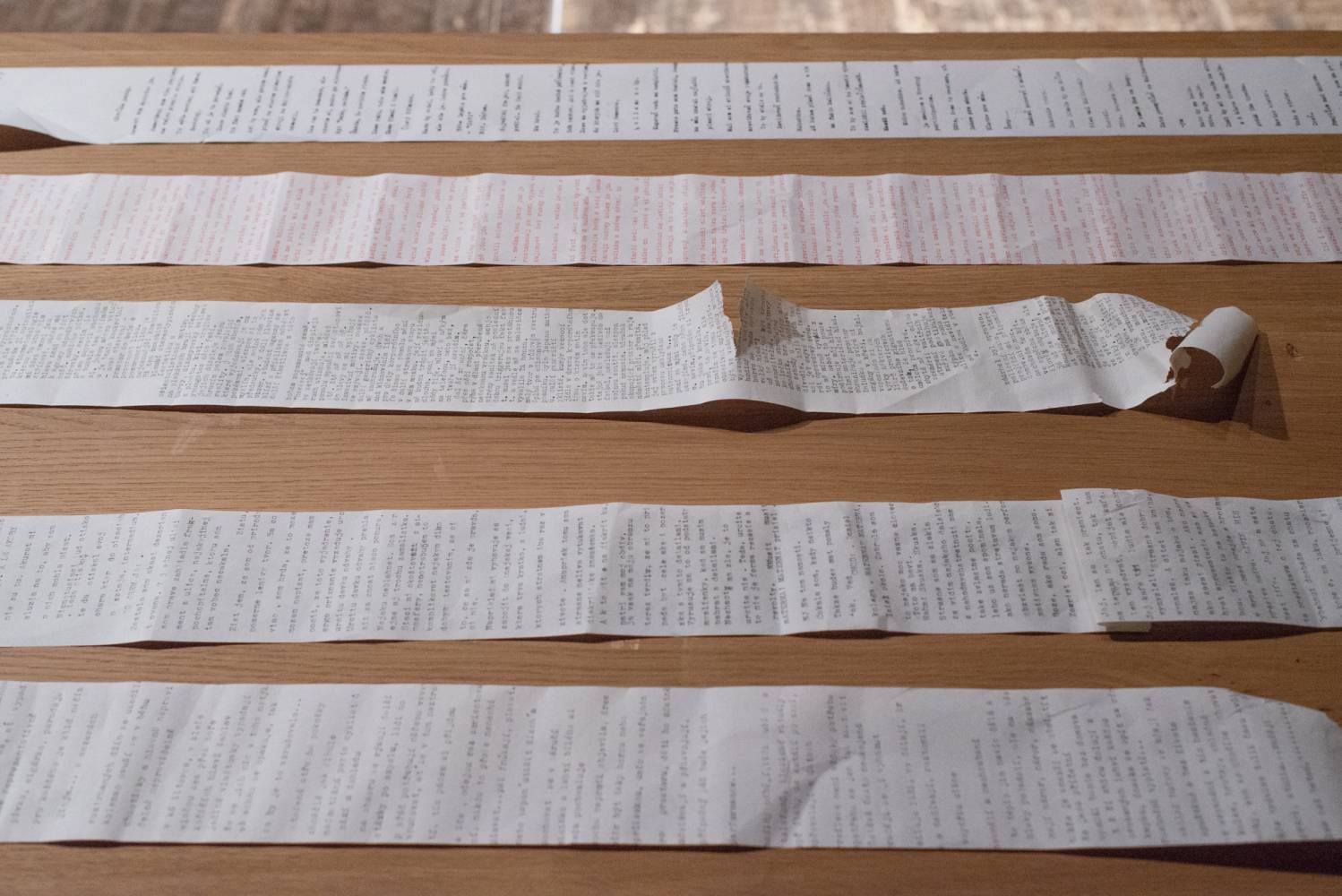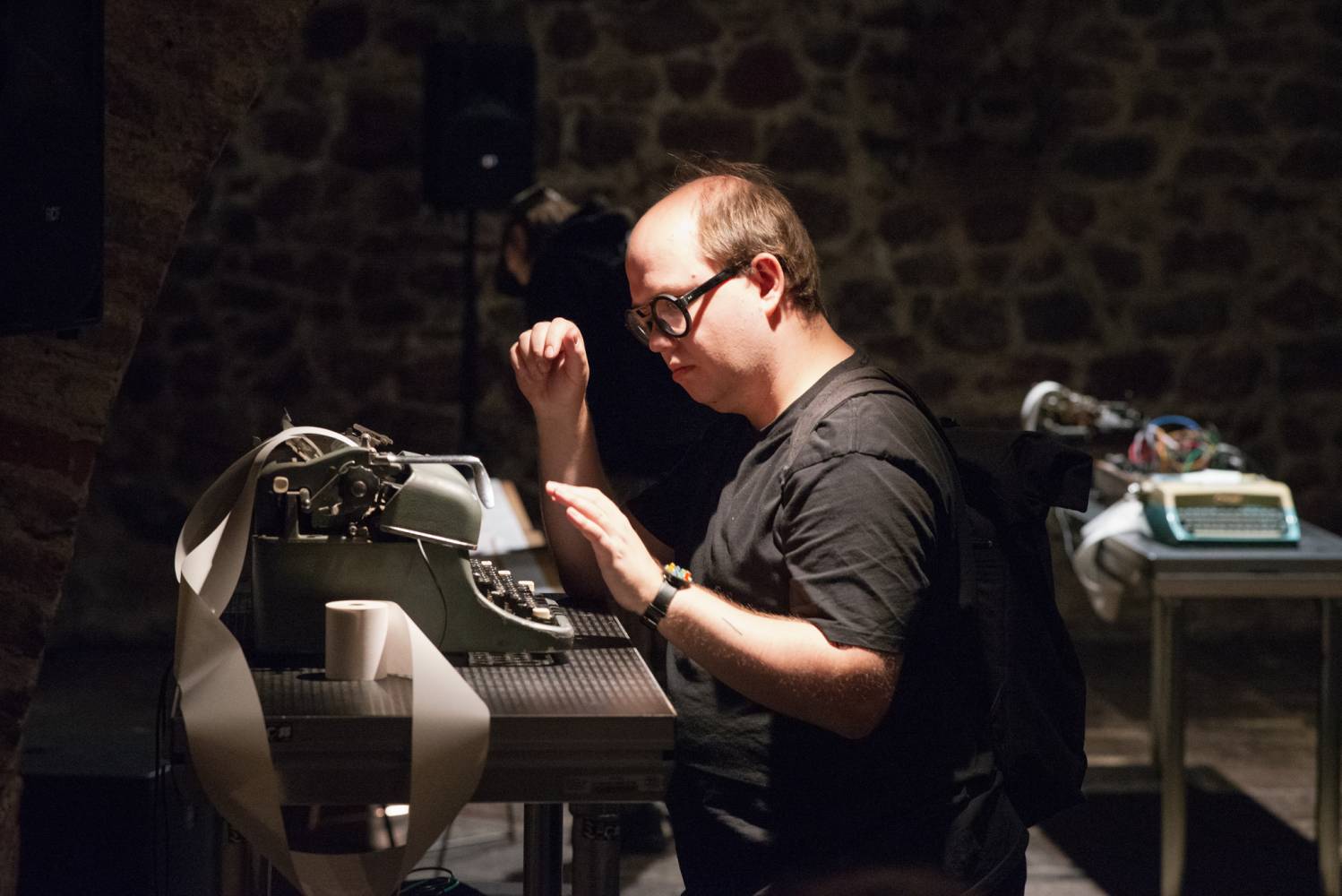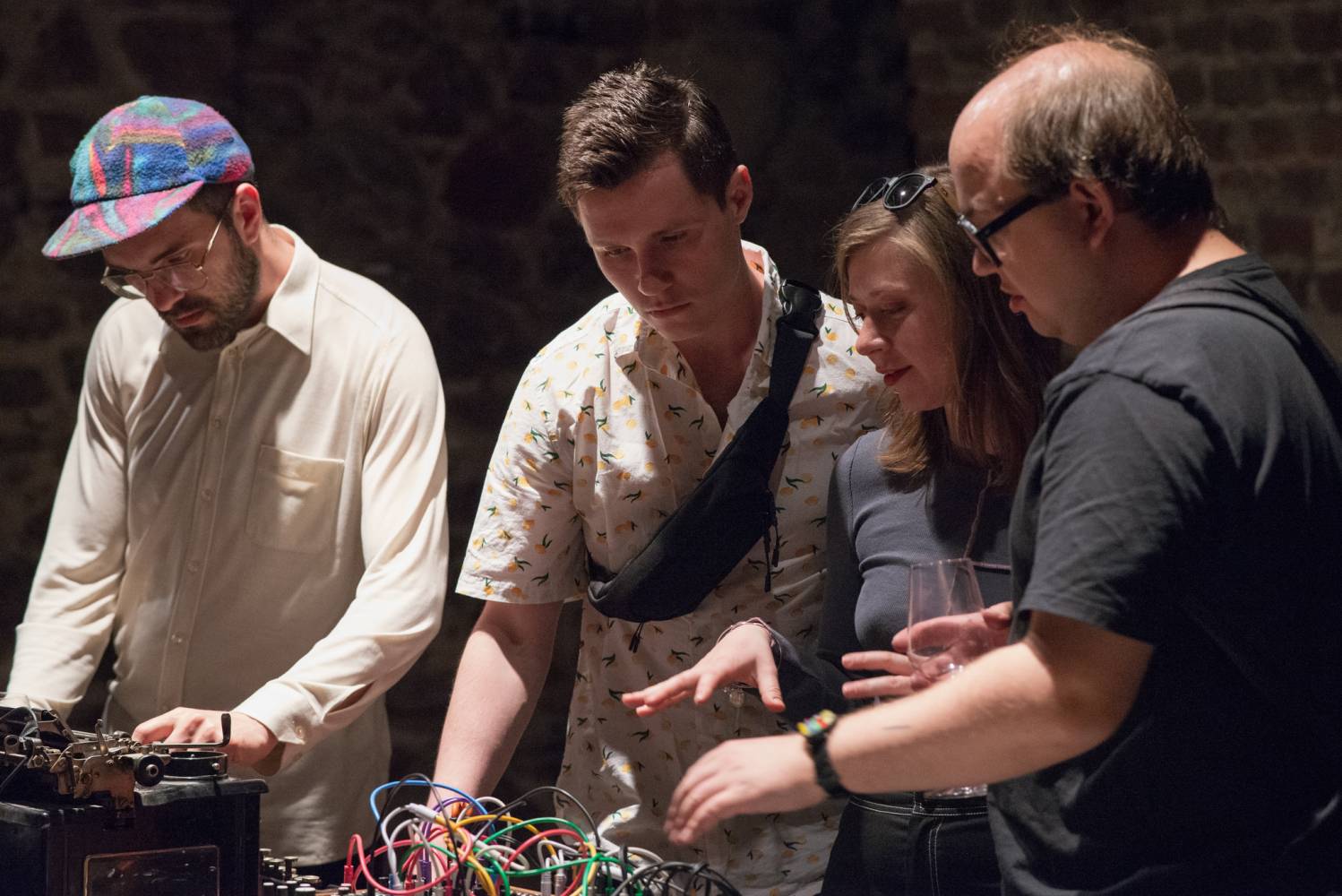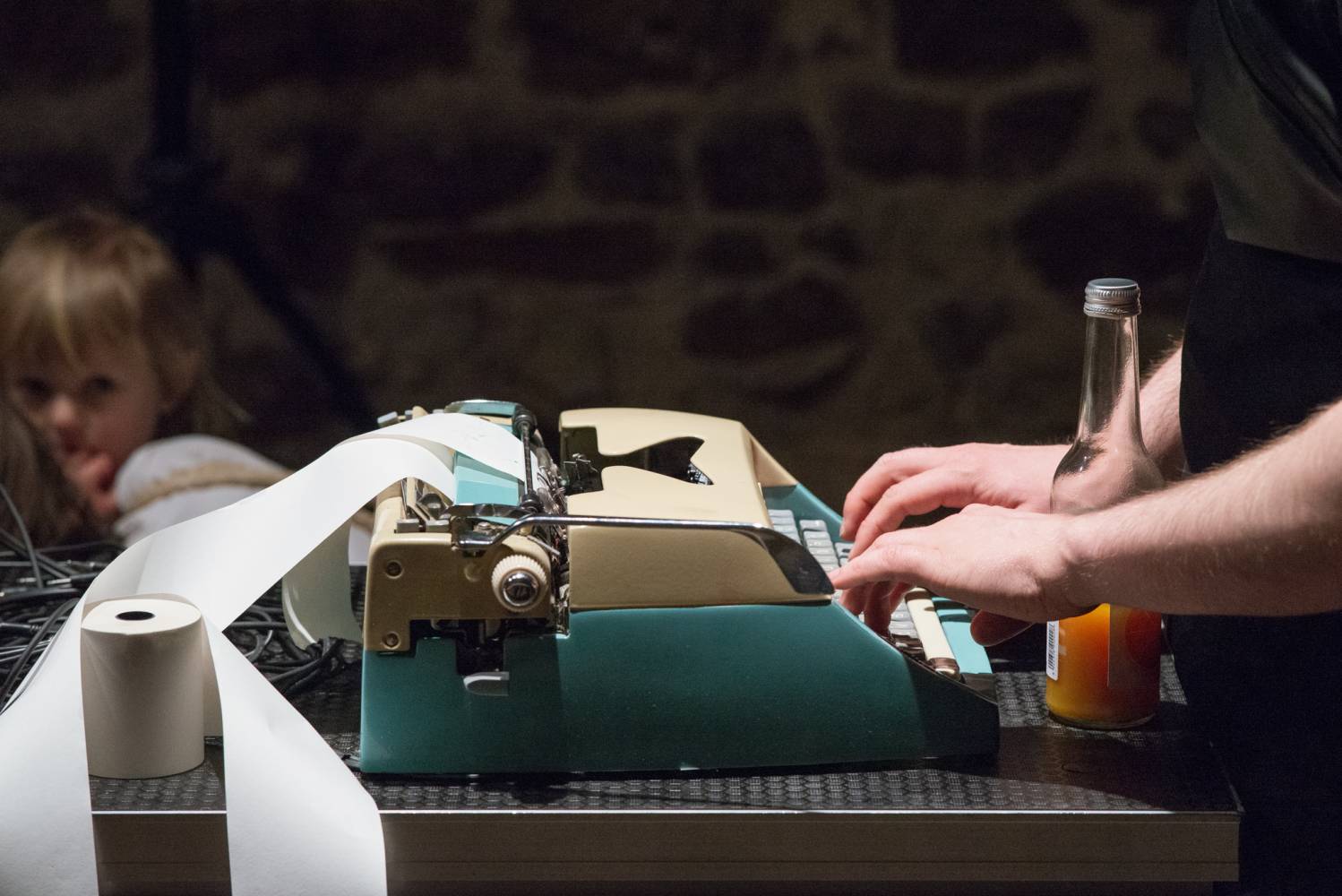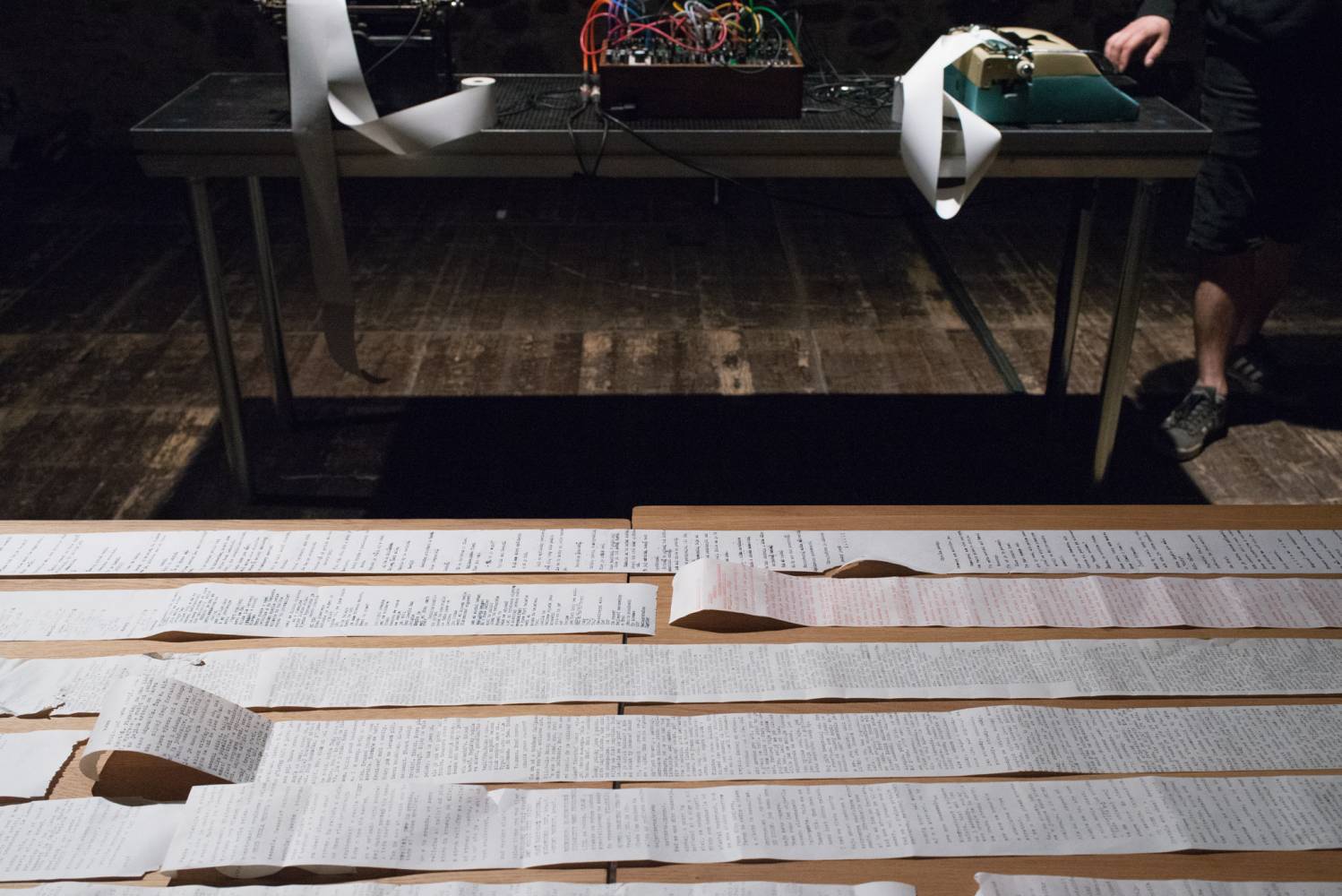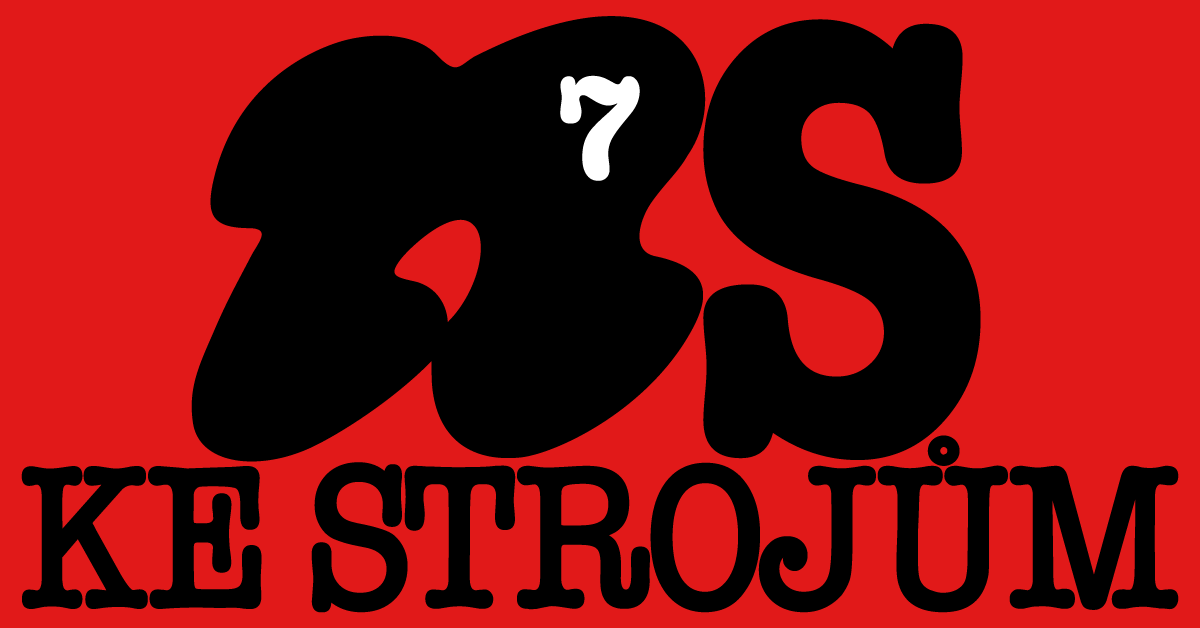The performance explores the written recording of events and processes in real time. It assumes that the type of recording medium largely defines the outcome: typing on a computer differs structurally and sensorially from handwriting, and the dynamics of a typewriter are equally unique. In this sense, the creative act focuses on the typewriter—its noisiness, mechanical nature, rhythm, and almost musical quality. The textual record thus becomes an imprint of the connection between the human brain and fingers with machine mechanics, ink ribbon, and paper. Writing on the typewriter will also represent a live action in the urban space.
After the collaborative writing session, there will be an opening of a temporary text-sound installation at the Sklepní Scéna of CED. The installation is being created in collaboration with photographer, tinkerer, and hardware and software developer Václav Mach.
BIO
Pavel Novotný (*1976) is a poet, translator, Germanist, and educator, working at the Department of German Language at the Technical University of Liberec. He is the author of several poetry collections, such as Tramvestie, Zevnitř (From the Inside), and Zápisky z garsonky (Notes from a Studio Apartment, Magnesia Litera 2021). Together with Helena Skalická, he co-wrote the prose work A to si pak můžeš říkat, co chceš (And Then You Can Say Whatever You Want). He also adapted the poetry collection Tramvestie into a libretto for an opera of the same name by Petr Wajsar (National Theatre New Stage, 2019). He has created numerous radiophonic compositions for Czech Radio Vltava. Among his translations are Hans Magnus Enzensberger's poetry cycle The Sinking of the Titanic, as well as, in collaboration with Nikola Mizerová, Enzensberger's Mausoleum: Thirty-Seven Ballads from the History of Progress and an anthology of the legendary Wiener Gruppe. As a literary scholar, he focuses on literary collage and montage, as well as issues related to so-called acoustic literature and experimental radio plays.

